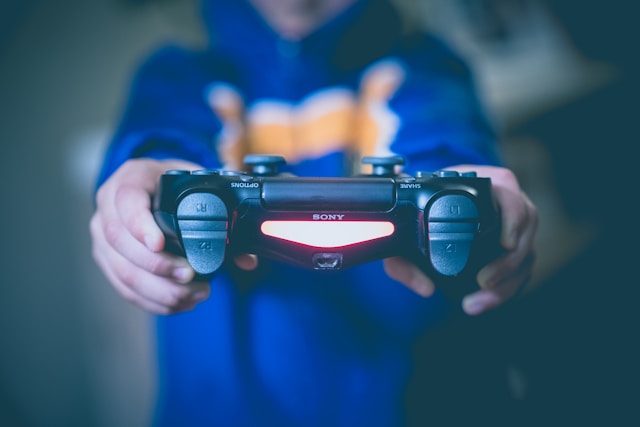Gaming is an incredible source of entertainment, creativity, and challenge, but even the most dedicated players can face gaming-induced burnout. This condition, marked by video game fatigue and mental exhaustion, can reduce the joy and satisfaction derived from gaming. By understanding the causes of gaming fatigue and learning strategies to avoid it, you can maintain a healthy, balanced approach to your favorite pastime.
What is Gaming Burnout?
Gaming burnout, also referred to as gaming-related exhaustion or game exhaustion, occurs when prolonged or excessive gaming leads to mental and physical fatigue. Unlike temporary tiredness, burnout represents a deeper disconnection from gaming, making once-enjoyable activities feel tedious or unfulfilling.
The Psychological and Physical Factors Behind Gaming Burnout
1. Prolonged Screen Time and Video Game Fatigue
Spending excessive hours in front of a screen can strain the mind and body, contributing to gaming-induced burnout. This happens because:
- Cognitive Overload: Games that require constant attention, strategy, and quick reflexes can lead to mental fatigue.
- Sleep Disruption: Blue light from screens disrupts sleep cycles, making it difficult to recover fully from exhaustion from gaming.

2. Repetitive Gameplay
Repetition is a double-edged sword in gaming. While familiar tasks can be satisfying, too much repetition can lead to casinoclic casino en ligne gaming-related exhaustion.
- Monotony: Grinding or farming the same tasks reduces the brain’s release of dopamine, diminishing feelings of reward.
- Mental Tedium: Playing the same game modes or facing similar challenges can cause boredom and frustration.
3. Lack of Real-World Interaction
While online games provide social connectivity, they don’t always satisfy the need for meaningful, face-to-face relationships. This can amplify gaming fatigue by increasing feelings of isolation and disconnection.
The Impact of Gaming-Induced Burnout
Mental and Emotional Strain
Intense gaming without balance can lead to mental fatigue, irritability, and emotional stress. These symptoms may escalate over time, particularly during competitive or high-stakes gaming.
- Stress Hormones: Extended focus and high-stakes gameplay can elevate cortisol levels, contributing to game exhaustion.
- Decreased Enjoyment news today. A once-loved activity can feel like an obligation when burnout sets in.
Physical Consequences
Excessive gaming can result in:
- Muscle Tension and Headaches: Long hours in the same posture cause physical strain.
- Sleep Deprivation: Inconsistent or reduced sleep patterns lead to video game fatigue and sluggishness.
Recognizing the Signs of Gaming Burnout
Catching gaming-induced burnout early is essential. Common warning signs include:
- Irritability: Becoming easily frustrated while playing.
- Loss of Interest: Games no longer bring excitement or fulfillment.
- Fatigue and Apathy: Persistent tiredness and disinterest in starting a session.
- Physical Complaints: Symptoms like headaches, eye strain, or sore muscles.
Strategies to Avoid Gaming-Related Exhaustion
1. Create a Balanced Gaming Routine
- Limit Session Lengths: Avoid marathon gaming sessions to prevent gaming-induced burnout.
- Take Regular Breaks: Use the 20-20-20 rule: every 20 minutes, look at an object 20 feet away for 20 seconds.
- Prioritize Sleep: Stick to a consistent sleep schedule to combat video game fatigue.
2. Diversify Activities
Balancing gaming with other pursuits can help prevent gaming-related exhaustion:
- Exercise Regularly: Physical activity relieves stress and restores energy levels.
- Explore Hobbies: Non-gaming hobbies such as reading, cooking, or outdoor adventures can provide a refreshing change.
- Socialize: Strengthen real-world connections with friends and family to counteract feelings of isolation.
3. Rotate Games and Genres
Monotony is a key contributor to game exhaustion, so variety is essential.
- Switch Genres: Alternate between action games, puzzle-solving, or story-driven titles.
- Reduce Grinding: Take breaks from repetitive tasks to keep gaming fresh and engaging
How to Recover from Exhaustion from Gaming
If you’re already experiencing gaming fatigue, here’s how to regain balance:
- Step Back: Take a break from gaming for a few days to recharge.
- Reassess Goals: Reflect on why you play and focus on games that truly bring you joy.
- Reignite Passion: Explore new titles, challenges, or multiplayer modes to rekindle excitement.
Reclaiming the Joy of Gaming
Burnout, whether labeled gaming-induced burnout, game exhaustion, or video game fatigue, doesn’t mean you have to quit gaming altogether. By recognizing the signs early and adopting healthy habits, you can ensure gaming remains a source of joy and relaxation. Balancing gameplay with other aspects of life is key to avoiding gaming-related exhaustion and enjoying the immersive worlds you love.
Conclusion
Gaming should be a source of inspiration, creativity, and connection, offering players the opportunity to explore new worlds, challenge their skills, and bond with others. However, to truly enjoy the full benefits of gaming, it’s essential to maintain a healthy balance between your gaming sessions and personal well-being.
By implementing strategies like taking regular breaks, managing screen time, and staying aware of online safety, you can enjoy the immersive experiences that games offer while safeguarding your mental and physical health. With the right approach, gaming can continue to be a fun and rewarding hobby that enriches your life, enhances your problem-solving abilities, and fosters meaningful connections with a global community of players. Keep leveling up, but remember to prioritize self-care along the way!

